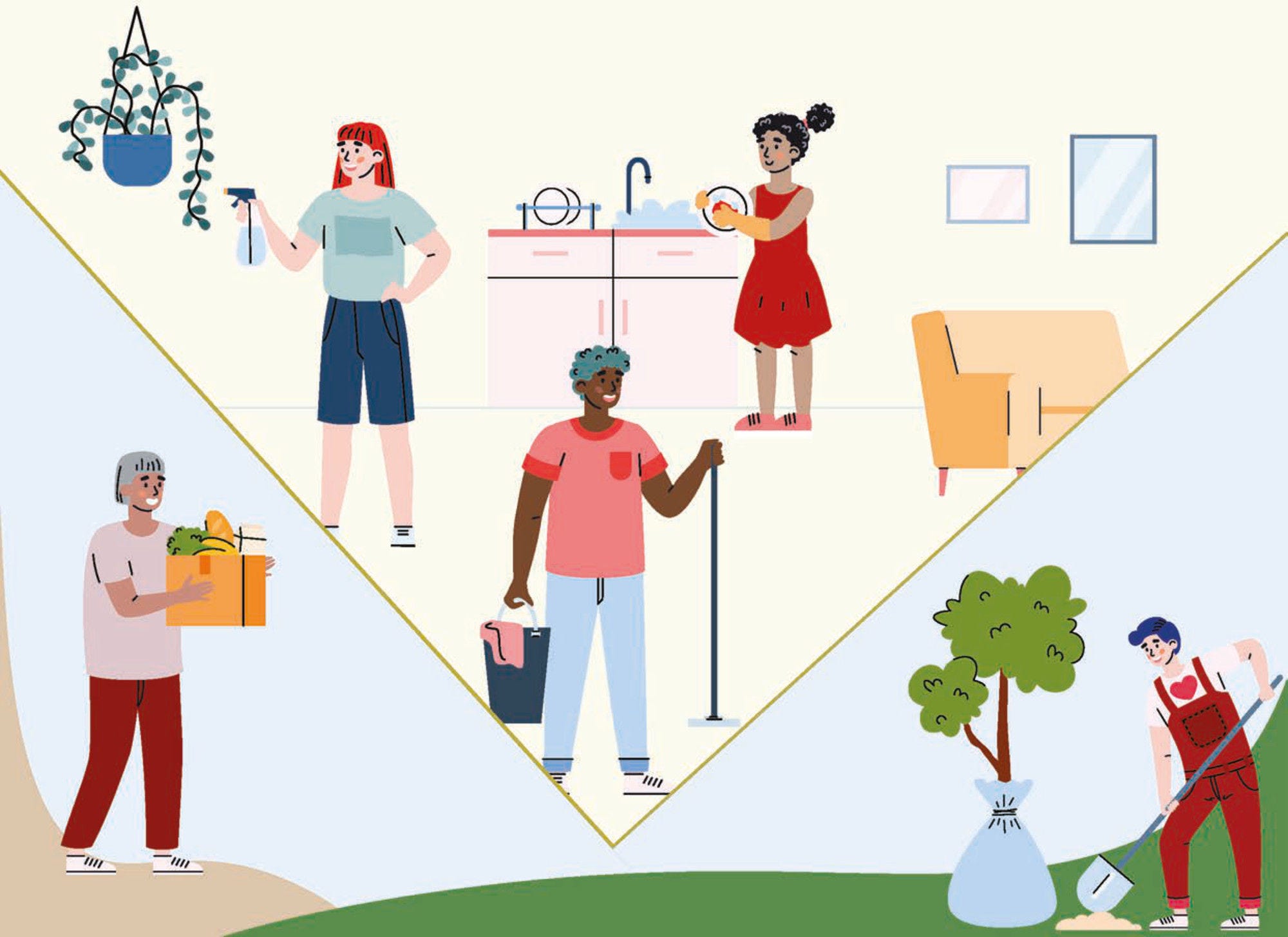The tripartite model is the most common work arrangement in many countries. This model includes third parties, usually service provider organisations, which mediate the non-care service provision in households. The service provider organisations can take a variety of forms, for example, for-profit businesses or non-profit associations, but public authorities can also provide services. In each of these settings, households purchase the services from the provider organisations, who then send their employees to provide services in the consumers’ homes (Baga et al., 2020[3]).
Both the Swedish and the Belgian non-care household service policy frameworks are embedded in a tripartite system that generally does not allow for significant subsidies for direct domestic employment.3 As such, only services bought through provider organisations are generally eligible for tax credits or social vouchers. In Sweden, these providers need to be registered as paying corporate tax and are usually for-profit, half of which are micro‑entrepreneurs (Ad-PHS, 2020[82]). In Belgium, both for- and non-profit service providers are active in the market, along with some micro‑entrepreneurs (Ad-PHS, 2020[87]). In Finland, 90% of household services are provided through intermediaries, both for- and non-profit. While both private and public agencies provide household services, it is predominately private providers that operate in the non-care sector (Ad-PHS, 2020[84]).
In general, tripartite arrangements are linked to relatively good working conditions. In countries where tripartite systems are the norm, wages are typically set by collective agreements (wages for other countries, where bipartite employment is more common, are discussed in the sub-section below). For Sweden, these specify a minimum salary of SEK 21 347 (PPP 2 405) per month at 40 hours per week in 2019, while receiving the same access to social security and employment protection as any other employee the country (Bowman and Cole, 2014[104]). The few workers not covered under collective agreements directly negotiate wages with their employers. Domestic cleaners in Finland earn a minimum of EUR 1 790 (PPP 2 121) per month at 37.5 hours per week in 2019 (Eurofound, 2020[105]; Ad-PHS, 2020[84]; Ad-PHS, 2020[82]). For all workers in the Belgian social voucher system, wages are set by collective agreement determined in a sectoral-level “Joint Committee” between worker and employer representatives. About 90% of these workers are registered under Joint Committee 322.01 for accredited social voucher agencies, which fixed gross wages at EUR 11.35 (PPP 15.05) to EUR 12.06 (PPP 15.99) per hour in 2020 (depending on seniority in the sector). This is substantially larger than the minimum wage of EUR 9.65 (PPP 12.73), and the small share of workers covered by other collective agreements can receive somewhat higher wages. For all workers, full social security rights are guaranteed and more than two‑thirds of all contracts are indefinite, additionally guaranteeing at least 10 hours of work per week. The organisations that operate on the service voucher market are at all times requires to guarantee their employees well-being at work. As a result, the Belgian service voucher sector can be considered as “[…] the most regulated and protected […]” domestic service sector in the world (European Commission, 2018[7]; Jokela, 2017[58]; Ramos Martin, 2020[106]; Lens et al., 2021[107]).
As such, working conditions in the sector are comparatively favourable, even though there are risks of exploitation for vulnerable workers, especially migrants (Ollus, 2016[108]; Michielsen, 2018[109]). In addition, substantial increases in numbers of employees on sick leave highlight increased workloads over the years and the relative arduousness of the tasks (Ramos Martin, 2020[106]). In Belgium, for example, entering the service voucher system increases the likelihood of claiming disability benefits in the short and long term (Leduc and Tojerow, 2020[110]). Even if sufficient health and safety regulations are present, there is also a general lack in monitoring and enforcement of existing regulations regarding occupational health and safety (Mousaid et al., 2017[111]; van Gerven, 2020[112]).
The household service policy instruments in France and Germany operate in mixed systems, where both bipartite and tripartite work arrangements eligible for tax credits or social vouchers and exist side by side. In Germany, households directly employ about 81% of workers as marginal employees under the Minijob-scheme, while about 19% work in for- and non-profit tripartite arrangements (Ad-PHS, 2020[90]). In France, about half of the households employ service workers directly, while the other half buy services from for- and non-profit provider organisations or other intermediaries in a tripartite system. The latter can take various forms, such as associations, businesses, or public organisations. There are two different models among them, the mode prestataire, which represents normal tripartite providers, or mode mandataire, where an organisation handles the administrative tasks of hiring domestic workers for private households while not employing service workers themselves (Ad-PHS, 2020[67]).4 Overall, care work is predominantly provided by non-profit and public organisations, while for-profit organisation most often provide household service work (European Commission, 2018[7]).




